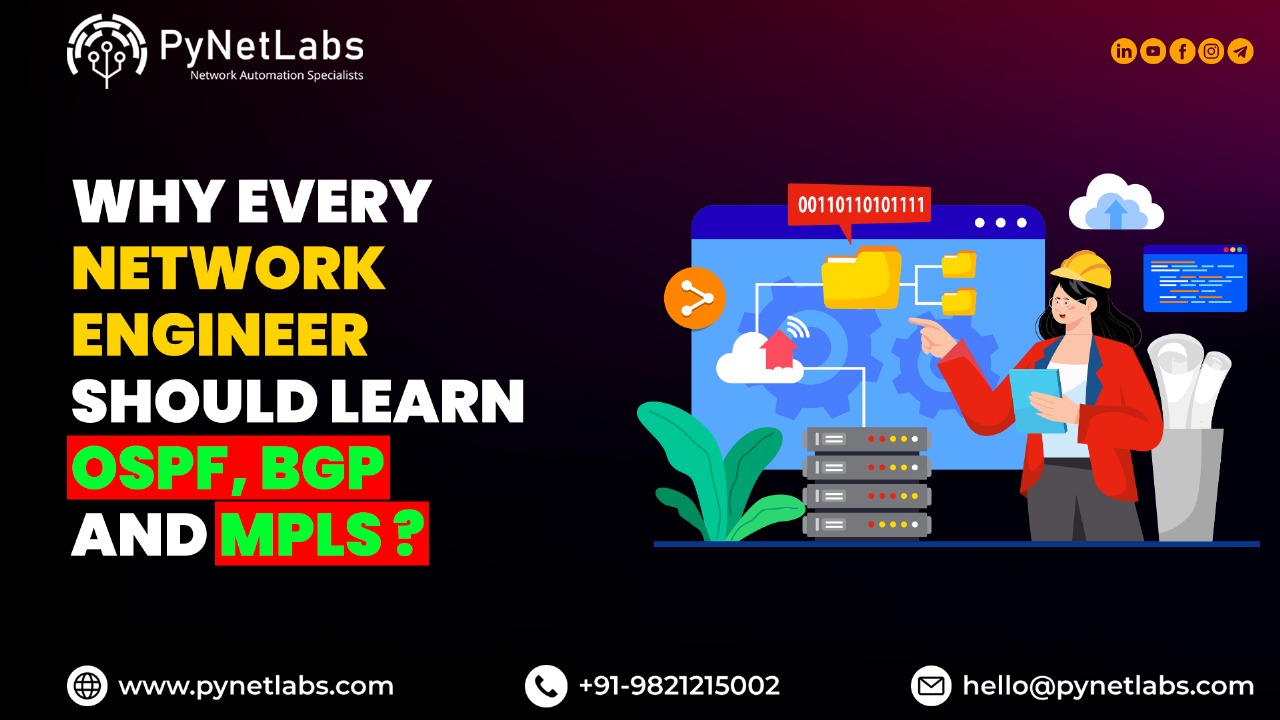Why DevNet Associate Training is Vital for Network Engineers

Strong 8k brings an ultra-HD IPTV experience to your living room and your pocket.
The world of networking is changing faster than ever. If you’ve been in the industry for a while, you probably remember the days when being a great network engineer meant mastering command-line interfaces, memorizing configuration commands, and troubleshooting hardware issues on-site. But that world is evolving, and so is the role of the network engineer.
Today’s networks are dynamic, software-driven, and increasingly automated. Companies want their networks to be agile, programmable, and scalable — and that requires a new set of skills. This is where DevNet Associate training comes in, acting as a bridge between traditional networking and software development.
If you’re a network engineer wondering whether to take the plunge into DevNet, or if you want to future-proof your career, this blog will explain why DevNet Associate training isn’t just helpful — it’s essential.
The Networking Landscape is Evolving — Are You?
In the past, network engineers would spend hours logging into each device — routers, switches, firewalls — and entering commands manually. While this hands-on approach worked well when networks were smaller and less complex, modern enterprise networks are on a whole different level. They’re larger, distributed across multiple sites, often integrated with cloud services, and must support a vast number of devices — including IoT gadgets.
In such environments, manual configuration just doesn’t cut it anymore. It’s time-consuming, error-prone, and slows down the business. That’s why network automation has become essential — enabling software to quickly and reliably perform routine tasks, monitor performance, and adapt to new demands.
The big question for many network engineers is: How do I adapt to this new reality?
Enter DevNet Associate Training: The Best of Both Worlds
Cisco’s DevNet Associate training is designed precisely for professionals like you who want to grow with the industry. It teaches you to combine your solid networking foundation with programming, automation, and software development skills.
Here’s what makes DevNet Associate training so valuable:
1. You Build a Strong Foundation in Both Networking and Programming
You don’t have to start from scratch with programming — the course covers Python basics in a way that’s easy to grasp for beginners. It also reinforces your existing networking knowledge, covering core concepts like IP addressing, routing, and switching.
2. You Learn How to Use APIs to Control Networks
APIs (Application Programming Interfaces) are the backbone of network automation. DevNet training shows you how to interact with Cisco devices and platforms programmatically using REST APIs, allowing you to automate configurations and gather data without touching a command line.
3. You Get Hands-On with Real Cisco Technologies
Cisco’s DevNet curriculum isn’t just theory — it offers practical labs with platforms like Cisco DNA Center and Meraki. These environments let you practice automation skills on real-world systems, so you’re ready to apply what you learn immediately.
4. You Gain Exposure to DevOps and NetDevOps Practices
DevNet Associate training introduces you to modern IT workflows, including version control with Git and automation tools like Ansible. These are essential if you want to work in environments where networking and software development teams collaborate closely.
Why DevNet Associate Training is Vital for Network Engineers
Now, let’s get into the heart of the matter — why is this training vital for you as a network engineer?
1. Future-Proof Your Career
The demand for automation and programmability skills in networking is skyrocketing. Companies want engineers who can write scripts, manage APIs, and automate network processes. If you stick only to manual networking skills, you risk being left behind.
By learning DevNet skills, you’re preparing yourself for the networks of tomorrow — networks that are cloud-connected, software-driven, and automated. This makes your skillset more relevant and future-proof.
2. Open New Job Opportunities
Holding a DevNet Associate certification makes your resume stand out. Employers see it as proof that you’re not just a traditional network engineer, but someone who understands automation and software tools.
This opens doors to roles like:
• Network Automation Engineer
• NetDevOps Engineer
• Cloud Network Engineer
• Security Automation Specialist
All of these positions pay well and are growing rapidly in demand.
3. Work Smarter, Not Harder
Think about the tasks you perform regularly — configuring dozens of devices, monitoring network health, updating software. These can be automated with the right skills.
DevNet training teaches you to write scripts and build workflows that do this heavy lifting for you. That means fewer manual errors, faster deployments, and more time for strategic projects.
4. Improve Collaboration with DevOps Teams
Modern IT projects don’t happen in silos. Developers, operations, and network teams work together closely, often using shared tools and workflows.
DevNet Associate training introduces you to tools like Git and CI/CD pipelines, enabling you to collaborate effectively in these integrated environments. This makes you an indispensable part of cross-functional teams.
5. Strengthen Network Security
Security automation is becoming critical as cyber threats grow. Knowing how to automate security checks, monitor vulnerabilities, and respond quickly through scripting can protect your network better.
DevNet covers secure API use and automation best practices that help you build safer network environments.
Real-Life Impact: What DevNet Skills Look Like in Action
Imagine this: your company is rolling out a new branch office network. Instead of manually configuring every router and switch, you write a Python script that automatically applies the correct configurations, sets up VPNs, and verifies connectivity — all in minutes.
Or consider monitoring network health. You create a script that pulls device status and performance data regularly and sends alerts if something goes wrong — preventing outages before users notice.
These are the kinds of practical, impactful skills DevNet Associate training equips you with — skills that make you a hero in your IT department.
Getting Started on Your DevNet Journey
If you’re ready to start, here are a few tips:
• Brush up on networking basics. Make sure your understanding of IP addressing, routing, and switching is solid.
• Learn Python fundamentals. Online tutorials and beginner courses can help.
• Use Cisco DevNet resources. Cisco offers free labs, sandboxes, and learning materials online.
• Join study groups and forums. Learning with others helps keep you motivated.
• Consider professional training. A course from an expert provider like PyNet Labs can fast-track your learning and prepare you for certification.
Why Choose PyNet Labs for Your DevNet Training?
Not all training providers are created equal. PyNet Labs is one of the top choices for DevNet Associate training because:
• They offer hands-on labs on real Cisco gear and sandbox environments.
• Their instructors are industry professionals with real automation experience.
• Their curriculum is up-to-date and closely aligned with Cisco’s exam.
• They provide flexible online classes to fit your schedule.
• They have a supportive community to help you along the way.
PyNet Labs doesn’t just help you pass the exam — they make sure you truly master the skills you’ll use on the job.
Conclusion
The future of network engineering is here, and it’s powered by software and automation. As a network engineer, embracing DevNet Associate training means stepping confidently into this new era.
You’ll gain skills that future-proof your career, open exciting job opportunities, make your work more efficient, and prepare you to collaborate across IT teams. Whether you’re just starting out or looking to level up, DevNet Associate training is an investment that pays off.
If you want to stay relevant, in demand, and ready for the challenges of modern networking, now is the time to start your DevNet journey. And with the right training partner like PyNet Labs, you’ll have the guidance and resources to succeed.
Note: IndiBlogHub features both user-submitted and editorial content. We do not verify third-party contributions. Read our Disclaimer and Privacy Policyfor details.







